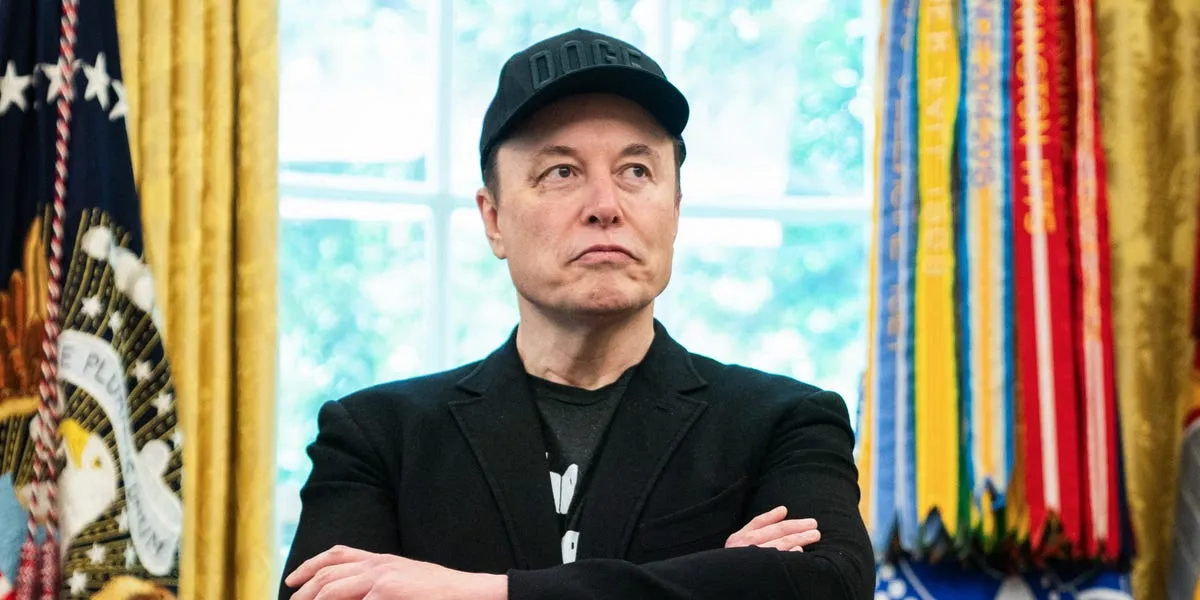
The future of Tesla may face significant challenges if President Donald Trump's Big Beautiful Bill becomes law. While Elon Musk's other ventures, particularly his AI company, might see some advantages, the implications of this federal spending bill could directly impact Musk's various businesses, many of which rely heavily on federal regulations, subsidies, or contracts.
Despite previously expressing his disapproval, Elon Musk has intensified his criticism of the bill this week. On Tuesday, he took to X to voice his concerns, stating, "I'm sorry, but I just can't stand it anymore. This massive, outrageous, pork-filled Congressional spending bill is a disgusting abomination. Shame on those who voted for it: you know you did wrong." His comments were aimed specifically at Republican politicians who supported the bill.
This outburst came shortly after Musk officially stepped down from his role as the de facto head of the DOGE office, concluding his formal involvement with the White House. In recent weeks, both Trump and Musk have publicly reaffirmed their relationship, despite their disagreements on certain issues. White House press secretary Karoline Leavitt noted that President Trump was already aware of Musk's position on the spending bill, emphasizing that Musk's criticisms would not influence Trump's stance.
The spending bill champions many of Trump's priorities, including cuts to Medicaid and the extension of tax cuts from his first term in 2017. Among its notable provisions are the removal of taxes on tips and overtime, which align with the administration's agenda.
However, the bill poses a potential threat to Tesla, as it proposes significant changes to the Biden-era EV tax credits designed to encourage electric vehicle purchases. If enacted, the bill would phase out the clean vehicle credit that allows buyers of new EVs to claim up to $7,500, and up to $4,000 for used EVs. Notably, electric vehicles from manufacturers that have sold over 200,000 qualifying EVs would no longer be eligible for these credits, which could have dire consequences for Tesla, which delivered over 336,000 vehicles in the first quarter of 2025 alone.
Musk has previously indicated that the elimination of the EV tax credit would adversely affect both Tesla and its competitors. He suggested, however, that in the long run, it might benefit Tesla. Industry experts, like Seth Goldstein, an equity strategist at Morningstar, have expressed skepticism regarding Musk's optimism. Goldstein noted that the rapid removal of the EV tax credit could significantly impact Tesla's sales, especially as consumers are presented with an increasing number of long-range EV options at competitive price points.
Ryan Brinkman, a JPMorgan analyst, further emphasized the potential negative ramifications of Trump's bill, predicting that it, along with other proposed legislation, could threaten more than half of Tesla's profits by 2025. Brinkman highlighted that the $7,500 consumer tax credit represented 19% of Tesla’s earnings before interest and tax for 2024, indicating a potential $1.2 billion setback for the company.
As Tesla continues to focus on AI and robotics, particularly with the launch of its upcoming robotaxi service, these developments are critical for enhancing the company’s valuation. However, Brinkman cautioned that tangible benefits from Tesla's autonomous initiatives are still years away, while the headwinds from the EV subsidy removal could impact the company much sooner. He concluded that estimates for Tesla's earnings may need to be revised downward as the effects of the subsidy removal become clearer.
Interestingly, Goldstein mentioned that the expiration of the EV tax credit might spur short-term demand from buyers eager to purchase Tesla vehicles before the incentives disappear. Furthermore, Trump's spending bill could introduce additional fees, such as a $250 annual charge for EV drivers and a $100 fee for hybrid vehicles, complicating the landscape for electric vehicle adoption.
The impending bill also threatens Tesla's burgeoning energy business, which Musk has described as experiencing rapid growth. The proposed legislation could eliminate energy tax credits, which are vital for Tesla’s energy generation and storage initiatives, including the successful Megapack and Powerwall battery systems. This segment generated $2.73 billion in the first quarter of 2025, marking a 67% increase from the previous year. Musk has voiced concerns that abruptly ending energy tax credits would jeopardize America’s energy independence and the reliability of its grid.
On a more positive note, Trump's spending bill may offer some advantages for Musk’s AI company, xAI. A section of the bill seeks to prohibit states and local governments from regulating AI for the next decade, potentially streamlining the development and deployment of AI technologies. This regulatory relief could enable Musk to advance xAI without the burdens of excessive legal constraints.
Additionally, the bill allocates funds for modernizing federal IT systems with AI and enhancing cybersecurity, opening doors for xAI to secure contracts for these modernization efforts. As the government looks to leverage AI for its operations, xAI stands poised to play a crucial role in these advancements.